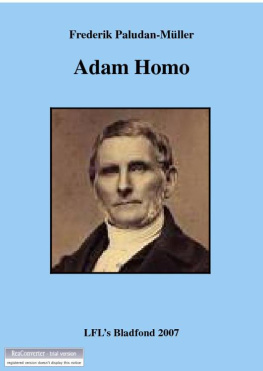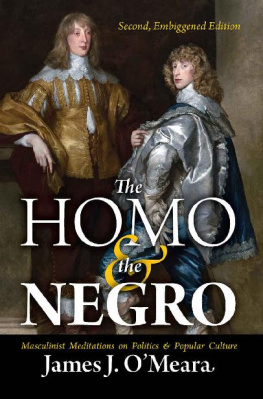

Contents

TO TOM DELAY
Introduction

I should have known something was amiss when Jack Abramoff told me about the kosher pigs.
The Republican superlobbyist and I were dining a few years ago at the high-end restaurant he owned, Signatures, across the street from the National Archives. Abramoff was a well-connected source who gave me newsy tips about presidential adviser Karl Rove and House majority leader Tom DeLay. On this day, however, we were talking about a second restaurant he planned to open, a kosher Jewish deli called Stacks. He said he had just located a species of swine in Asia that chews its cudas required by the Jewish dietary laws. Thus, Abramoff said, would he operate the first kosher restaurant to serve bacon and pork sausage.
Alas, the kosher pigs turned out too good to be trueas did just about everything else about Abramoff. To date, Abramoff and eleven of his friends and associates have pleaded guilty in a sprawling corruption scandal in which Indian tribes were bilked for tens of millions of dollars and federal officials were bribed with golf trips and skyboxes. Signatures and Stacks are gone, and kosher pork continues to elude us.
As I thought about the crimes that sent Abramoff to jail, it occurred to me that they had much in common with his cud-chewing-pig scheme. Abramoff believed that if you were powerful enough, the rulesfederal statutes or Jewish dietary lawsdidnt apply to you. In this view, Abramoff was typical of the peculiar species that inhabits the capital: Homo politicus, or, in the native tongue, Potomac Man. Homo politicus is unlike other members of his genus because he strives for power for its own sake. For him, fame and fortune are only vehicles to obtain power or are by-products of power; it matters little how or to what end the power is exercised, only that it is possessed.
I came to live in political WashingtonPotomac Land, if you willtwelve years ago. For most of that time, I have lived among the natives as if I were one of them: working, eating, dressing, and socializing as they do and wearing the same government-issued ID cards and BlackBerry devices. As I gained their trust over time, they allowed me to join them in their homes, war rooms, and tribal councils. Seeing them that way, I felt like a Spanish explorer witnessing an Aztec human sacrifice for the first time. In his natural state, Homo politicus was so defined by tribalism that he placed tribe, or party, above even family and nation-state. Though he was equipped with the tools of modern civilization, his work proved to be less efficientand his rituals more bizarrethan those of even the most primitive cultures.
As I write this, the events of recent weeks in Potomac Land must confound those who have not lived among Homo politicus. Senator Larry Craig of Idaho was arrested for lewd conduct in an airport mens room after touching an undercover policeman in a neighboring stall. (The officer was not impressed when Craig handed him his Senate business card and said, What do you think about that?) The deputy secretary of state, Randall Tobias, has resigned and Senator David Vitter of Louisiana has issued a public apology because they used an escort service alleged to be a prostitution ring run by the D.C. Madam.
Meanwhile, Paul Wolfowitz, who, after championing the disastrous Iraq war, was rewarded with the presidency of the World Bank, lost that job for getting his girlfriend a raise. The former number two official at the Interior Department was sentenced for lying to Congress about one of several girlfriends he used his office to assist. The FBI raided the home of Senator Ted Stevens of Alaska and businesses associated with two congressmen, John Doolittle of California and Rick Renzi of Arizona. Congressman William Jefferson was indicted for taking bribes, the president commuted a thirty-month perjury sentence given to the vice presidents former chief of staff, and the attorney general resigned after being accused of perjury and witness tampering.
None of these tales, however, causes much surprise in Potomac Land. While the names of the offenders change, and the plot details vary slightly, the theme is universal: Potomac Man will do almost anything to amass and to flaunt his power and that of his tribe. The same character trait can be found in many of the subjects of this study: the former national security adviser who hid classified documents in his clothing, the senator who handed out bingo cards at a confirmation hearing for chief justice of the United States, the congressman who wrote a menu listing exactly how large a bribe he required for various official acts, the Supreme Court justice who made an obscene gesture leaving church, the chairmen of the Iraq Study Group who paused in deliberations for a photo shoot for Mens Vogue, the attorney general who ordered a drape to cover the exposed breast of the Spirit of Justice statue, and the family-values lawmaker who settled a lawsuit with a young mistress who accused him of trying to strangle her.
To understand such behavior, I followed Potomac Man through his daily rituals: the morning Gaggle at the White House, the lunchtime reading of Hotline, the afternoon viewing of Wolf Blitzer, and the evening fund-raiser. I learned of his weekly rhythms: the Sunday morning shows that are more popular than church, the lawmakers Thursday afternoon rush to National Airport, and the administrations Friday evening dump of bad news. I observed his seasonal festivals at each stage of the biennial electoral cycle: the winter budget battle, the summer recess, and the fall campaign. And I explored the Potomac rites of passage: election, the accumulation of seniority, and, finally, the ascent to lobbyist.
Admittedly, even intensive research cannot thoroughly explain why a senior White House official would shoplift from Target or why a member of Congress would stash bribe money in food containers in his freezer or strike a police officer with her cell phone. Neither can such a study adequately account for the senator who calls man-made global warming the greatest hoax ever perpetrated or the Senate candidate who explained a low turnout at an airport rally by making up a story about a tree falling on a hangar. Such Potomac Land mysteries may never be solved. But they are well worth contemplating over a kosher ham sandwich.
One

STATUS
A mong the many paradoxes of Potomac Land is that it is, ostensibly, the capital of the most egalitarian people on the planet, and yet it has embraced a status system that is both hierarchical and byzantine. In substance, it is most similar to the varna caste system that has divided India for millennia. But while the caste system has become increasingly irrelevant and anachronistic in Indiadriven out by educated urbanites who dismiss it as primitivethe antiquated system grows ever more powerful in the mind of status-conscious Homo politicus, ever on the prowl for ways to demonstrate his power.
Next page










